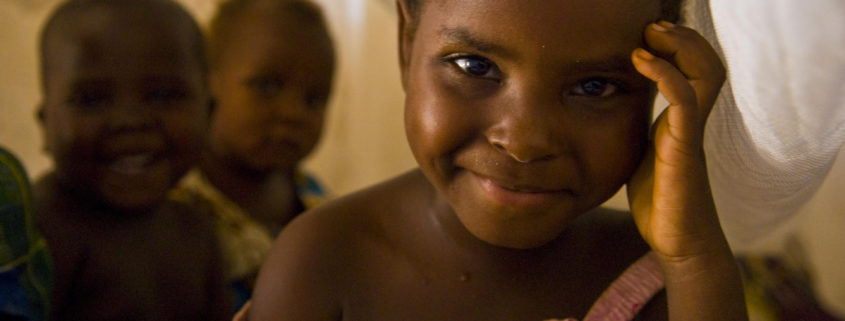
PHOTO CREDIT: Arne Hoel/World Bank (CC BY-NC-ND 2.0; No modifications made)
In this webinar, Breakthrough RESEARCH will share findings from its work in northwestern Nigeria related to malaria. We will present new ideational metrics collected and discuss how these metrics are associated with malaria prevention and treatment behaviors. Breakthrough ACTION will present key program design to address malaria prevention and treatment and the programmatic implications of the research.
Breakthrough RESEARCH is USAID’s flagship project for social and behavior change (SBC) research and evaluation, led by the Population Council. In Nigeria, Breakthrough RESEARCH is evaluating the effectiveness of Breakthrough ACTION’s integrated versus malaria-only SBC programming on priority malaria, family planning, and maternal, newborn, and child health and nutrition (MNCH+N) outcomes.
A behavioral sentinel surveillance (BSS) baseline survey was conducted in September 2019, with a midline and endline survey planned. The BSS survey measures changes in key behaviors and ideations (e.g., norms, beliefs, self-efficacy) across malaria, family planning, and MNCH+N to inform Breakthrough ACTION’s program adaption and scale-up over the course of the project.
Presenters:
Dele Abegunde, Breakthrough RESEARCH Nigeria, Population Council
Temitope Ogunbi, Breakthrough ACTION Nigeria, Johns Hopkins Center for Communication Programs
Emily White Johansson, Breakthrough RESEARCH Nigeria, Tulane University
Paul Hutchinson, Breakthrough RESEARCH, Tulane University
This webinar series began in June, and over the past few months, we have shared results from other health areas including vaccination, breastfeeding and pregnancy/childbirth. If you were unable to join us, these webinars are available on the Breakthrough RESEARCH Nigeria BSS YouTube playlist. These webinars highlight results from analyses of the relationships between ideations and behavioral outcomes and link the evidence to implications for Breakthrough ACTION programming in Nigeria. Upcoming webinars will focus on family planning and inequalities.


